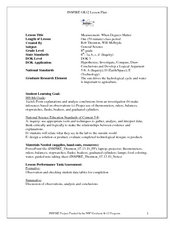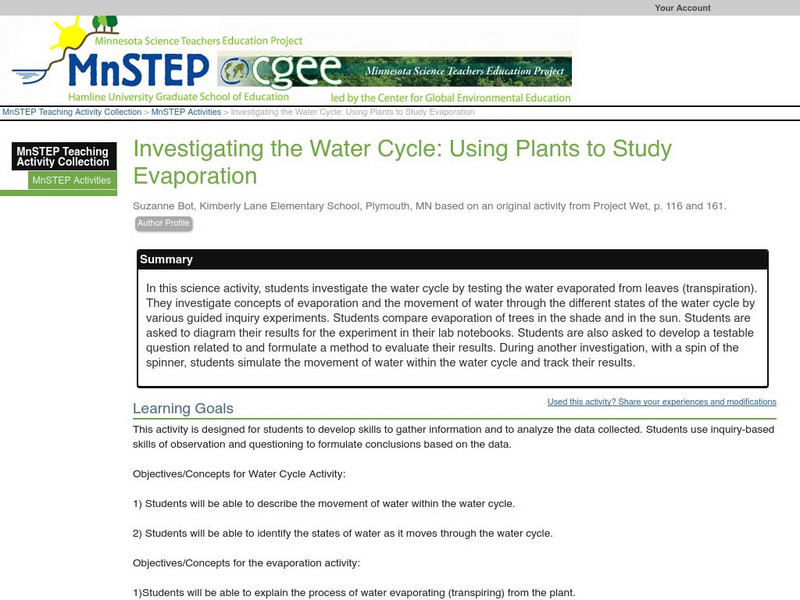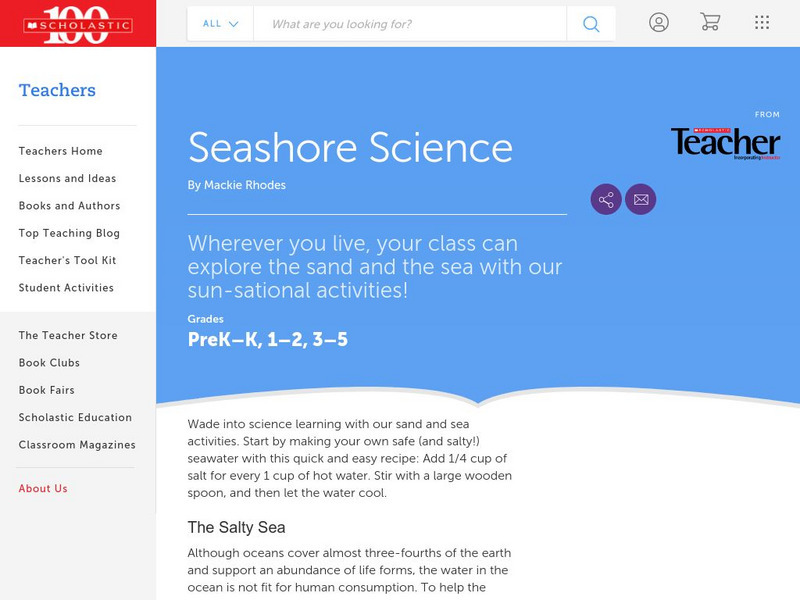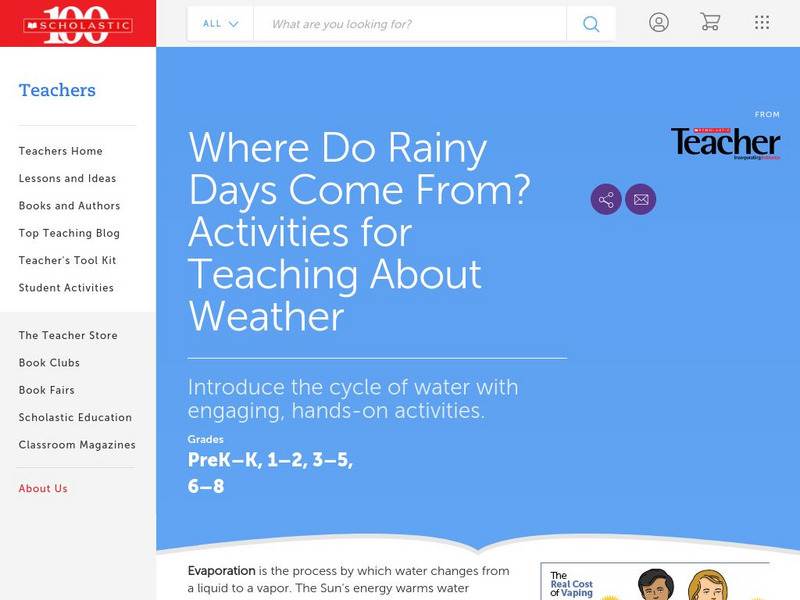Curated OER
Gardening for Beauty, Food, and Enjoyment
First graders create their own garden. In this plant lesson, 1st graders discover the essential elements for a plant to grow. They planted their own garden and read the amount of space needed and the sunlight preferred for each plant.
Curated OER
Time-Lapsed Observations
Students explore timed observations for science investigations. They record ideas on a chart related to a classroom closed terrarium. They repeat their observations for several days and time observations for changing shadows during the...
Curated OER
Grow Your Character Bookmarks
Students make bookmarks out of seed paper to study the growth of seeds and complete an activity for the Six Pillars of Character. In this science and character instructional activity, students describe the stages of growth of plants and...
Curated OER
Selecting Soil Organisms in Compost
Students demonstrate that many of the enzyme systems needed to break down--and therefore clean up-society's wastes already exist in nature among the decomposers. They select the best starch-munching organisms by altering the environment...
Curated OER
Measurement: When Degrees Matter
Eighth graders record the temperature change of the beakers. In this general science lesson, 8th graders create their own data table for recording observations. They discuss experimental results and cite real life applications.
Curated OER
How Does Climate Affect Our Shelter Needs?
Fourth graders investigate how weather influences shelter choices. They explore the concept of insulation and discuss some traditional Native American shelters. They discuss the shelters used by the Okanogan people during the various...
Curated OER
Youth Engagement
Students examine and then discuss opposite sides of controversial issues such as neighborhood curfews, lowering voter age, etc. They learn civic responsibility and cultivate tolerance for others' opinions.
Science Education Resource Center at Carleton College
Serc: Investigating the Water Cycle: Using Plants to Study Evaporation
In this science activity, students investigate the water cycle by testing the water evaporated from leaves (transpiration). They investigate concepts of evaporation and the movement of water through the different states of the water...
Science Education Resource Center at Carleton College
Serc: Investigating the Water Cycle: Evaporation
In this water cycle activity, students investigate the evaporation process by participating in an outdoor evaporation experiment held on the school grounds. Students will determine where evaporation takes place the fastest and how nature...
National Association of Geoscience Teachers
Nagt: Demonstrating Climate Change and the Water Cycle
Demonstration of the greenhouse effect and its role in climate change, discussion of the phases of water and the water cycle, and a hands-on experiment to investigate the role of temperature in phase changes of water.
Alabama Learning Exchange
Alex: The Water Cycle
This is a hands applied lesson plan to help students experience the water cycle on a smaller scale. Because of the hands-on nature of the lesson, it works well to help students with a language barrier understand complicated vocabulary.
American Geosciences Institute
American Geosciences Institute: Earth Science Week: Earth's Hydrologic Cycle
In this experiment, students create a model of the water cycle and learn about its crucial role in moving water around the Earth.
ArtsNow
Arts Now Learning: Be One With the Water [Pdf]
Fourth graders will explore states of matter and the water cycle by bringing water to life with their bodies. By enacting the changes that water molecules experience, 4th graders will learn scientific information kinesthetically.
American Chemical Society
Middle School Chemistry: Changing State: Evaporation
Students build a model of a water molecule and design an experiment to see if adding energy affects the rate of evaporation.
Scholastic
Scholastic Instructor: Seashore Science
Come and learn with this incredible seashore science resource. The content includes fun facts, experiments, reproducible activities, resources and more.
Scholastic
Scholastic: Where Do Rainy Days Come From?
Find out more about rainy days when you check out this resource, which features hands-on interactive activities, experiments, fun facts, and more.














![Arts Now Learning: Be One With the Water [Pdf] Lesson Plan Arts Now Learning: Be One With the Water [Pdf] Lesson Plan](https://d15y2dacu3jp90.cloudfront.net/images/attachment_defaults/resource/large/FPO-knovation.png)

